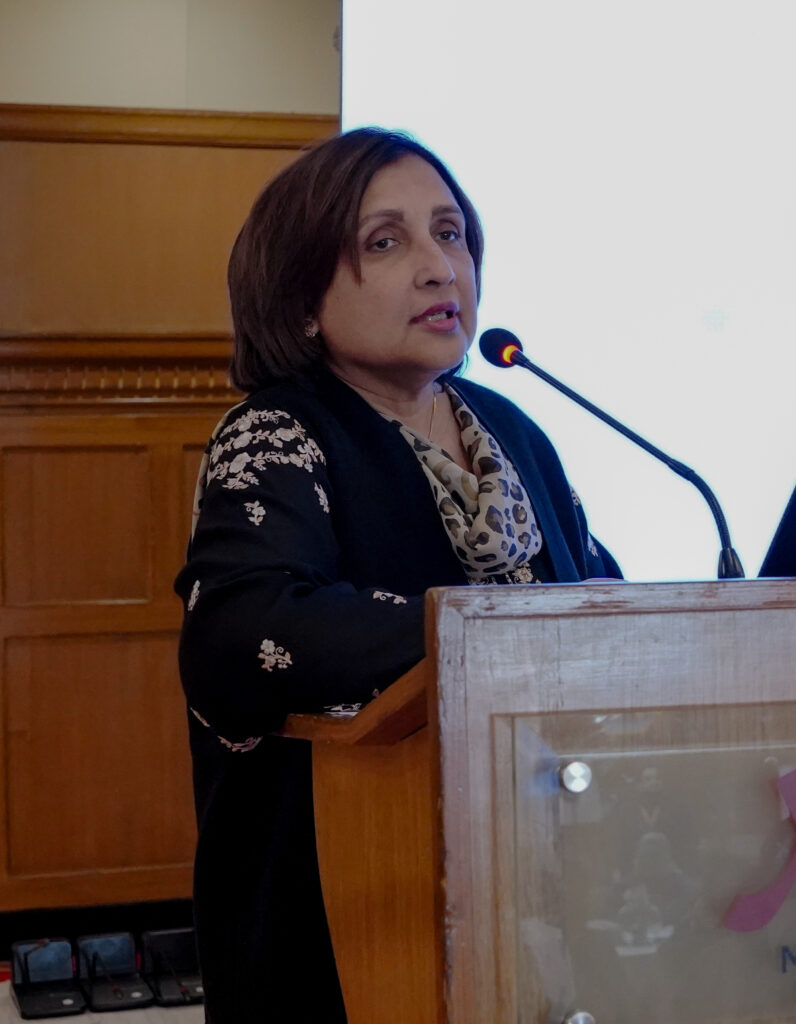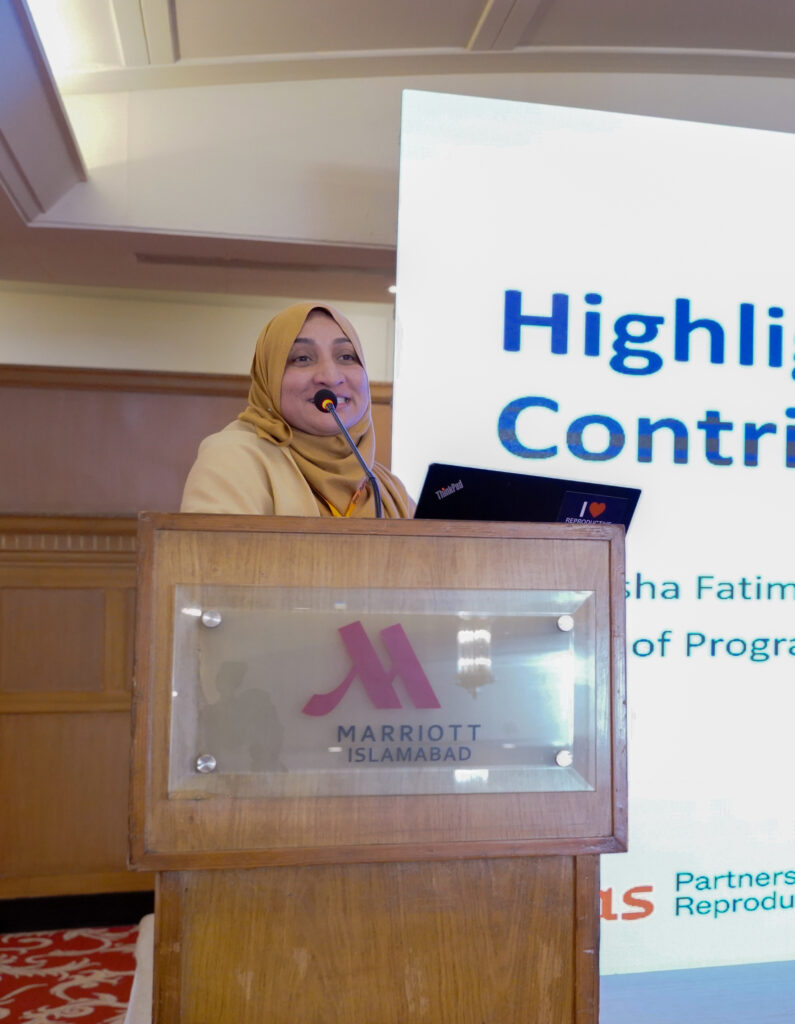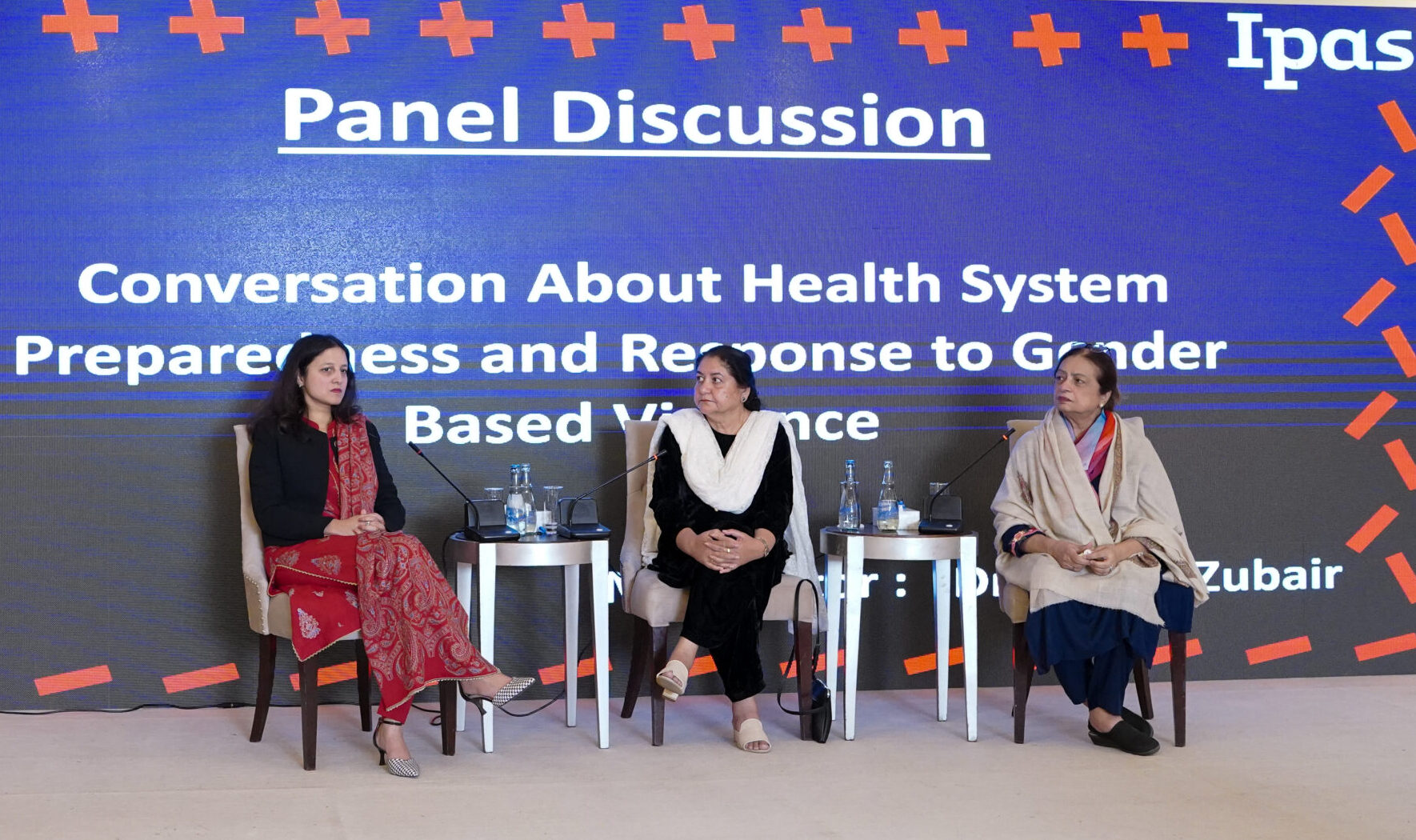On December 4, 2024, Ipas Pakistan marked the 16 Days of Activism against Gender-Based Violence with a transformative event in Islamabad: “Unpacking Reproductive Health Responses for Saving Lives and Well-being.” The gathering explored the crucial link between reproductive health and gender-based violence (GBV) and celebrated the tireless work of frontline health-care providers from Islamabad Capital Territory, Sindh, Khyber Pakhtunkhwa and Punjab.

Pictured above: Professor Dr. Syeda Batool Mazhar, President, South Asian Federation of Menopause Societies (SAFOMS) member IRC RCOG for Pakistan, set the tone, highlighting how reproductive health services are essential lifelines for GBV survivors that can help restore physical, mental and emotional well-being.

Pictured above: Dr. Aisha Fatima, Ipas Pakistan’s Head of Programs elaborated on the efforts of Ipas in providing sexual and reproductive health services to women and girls in Pakistan, aimed at contributing to Sustainable Development Goal 3 (reducing maternal mortality) and improving gender equality.
A dynamic panel discussion, “Health Systems Preparedness and Response to GBV,” brought together leading voices in sexual and reproductive health:

At left (left to right): Ayesha Salma, Director, Ipas Pakistan, Dr. Aziz-Un-Nisa, President, SOGP , Dr. Azra Ahsan, Chairperson, Contraception Committee, FIGO
Moderated by Dr. Saima Zubair, Vice President of Women’s Health, Pakistan Academy of Family Physicians, the panel discussion addressed systemic challenges women face, from household-level barriers to gaps in health-care infrastructure, as well as the impact of these issues on survivors.
Key solutions for change
The event produced important recommendations to strengthen health systems’ GBV response:
- Train providers to deliver trauma-informed, survivor-centered medical and psychological care and connect to legal support.
- Prioritize mental health support alongside physical care.
- Build stronger collaboration between health-care and legal aid systems, shelter facilities and civil society.
-
- There is a need to deeply understand and address the risks that health-care providers face in responding to complex GBV cases.
- More efforts are needed to ensure access to sexual and reproductive health services, including early pregnancy loss treatment and contraception in humanitarian crises where the risk of GBV rises and its impact is compounded by disrupted access to medical aid.
The road ahead
This event underscored a powerful message: Addressing GBV and reproductive health together is essential for saving lives and fostering resilience.
Ipas Pakistan reaffirmed its commitment to advancing sustainable reproductive health services in collaboration with partners. By bridging the gap between GBV and reproductive health, Ipas Pakistan continues to champion a future where survivors can access the care, justice and dignity they deserve.

“Health-care systems play a vital role in identifying and supporting GBV survivors. I commend providers who risk offering essential care, including treatment for early pregnancy loss caused by intimate partner violence. The Ipas MVA kit ensures safer uterine evacuation for women who might otherwise face severe risks from unsafe methods. Delivering sexual and reproductive health services, such as postabortion care and family planning, is essential to a comprehensive global GBV response.” – Ayesha Salma, Director of Ipas Pakistan, speaking at the event


